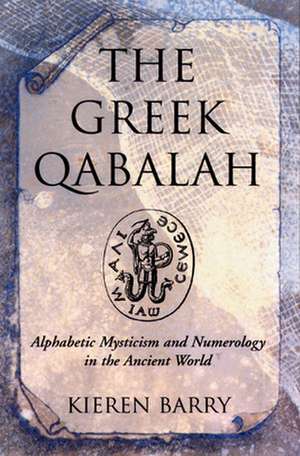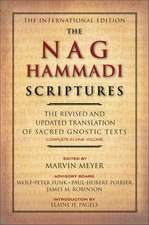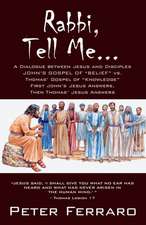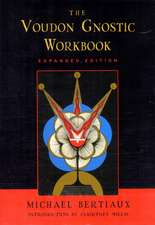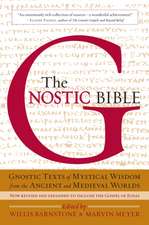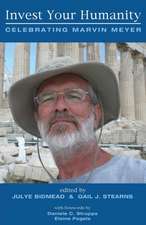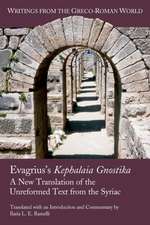The Greek Qabalah: Alphabetic Mysticism and Numerology in the Ancient World
Autor Kieren Barryen Limba Engleză Paperback – 30 sep 1999
Preț: 145.96 lei
Nou
Puncte Express: 219
Preț estimativ în valută:
27.93€ • 29.16$ • 23.06£
27.93€ • 29.16$ • 23.06£
Carte disponibilă
Livrare economică 25 martie-08 aprilie
Livrare express 08-14 martie pentru 27.18 lei
Preluare comenzi: 021 569.72.76
Specificații
ISBN-13: 9781578631100
ISBN-10: 1578631106
Pagini: 296
Dimensiuni: 138 x 210 x 20 mm
Greutate: 0.42 kg
Editura: Weiser Books
ISBN-10: 1578631106
Pagini: 296
Dimensiuni: 138 x 210 x 20 mm
Greutate: 0.42 kg
Editura: Weiser Books
Textul de pe ultima copertă
A landmark new work in its field, The Greek Qabalah uses extensive academic research to reach what some may consider to be a controversial conclusion -- that the literal Hebrew Qabalah actually has Greek origins. Drawn from a vast array of ancient authorities and archaeological evidence -- from Aristotle to Zosimus, from Pythagoras to St. Paul, from Egyptian papyri to graffiti at Pompeii -- Kieren Barry carefully documents the use of the alphabet in philosophy, religion, oracles, and magic in the ancient world. He takes you on a journey through history, from the dawn of the alphabet, to the late Byzantine Era, following the continuous evolution of alphabetic symbolism from the number-mysticism of Pythagoras, to the Greek philosophers, the Egyptian magicians of Alexandria, the Romans, the Gnostics, the early Church Fathers, the Neoplatonists, and the Jews. Special attention is also given to the topical use of the Qabalah in the Bible, Gnosticism, and in the recently discovered Nag Hammadi Codices.
Also included are appendices containing tables of alphabetic symbolism, a list of ancient authors, and a numerical dictionary of several thousand Greek words, which represents the largest collection of gematria or isopsephy yet available in print. The Greek Qabalah is a revolutionary work that will be of enduring interest to a wide range of readers, including students of ancient history and early Christianity, Qabalists, and modern magicians, for many years to come.
